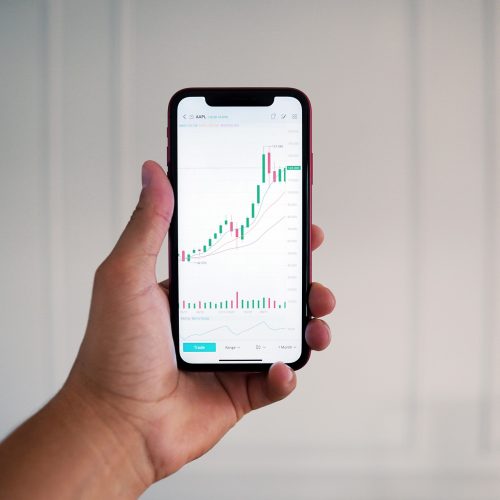ETFs or Exchange Traded Funds are security types that follow a particular index. An ETF tracks an index and can be bought and sold like stocks.
Currently, only one cryptocurrency exchange-traded fund (an ETF) is available to US investors: Grayscale’s Bitcoin Investment Trust (ticker: GBTC). GBTC works like any other non-bitcoin investment vehicle; you buy shares in the trust. Anyone who owns those shares has indirect exposure to bitcoin without maintaining custody of their holding.
The notable differences between GBTC and your average stock ETF are that it’s not as heavily regulated as the typical mutual fund, making it less expensive for investors because they don’t have to pay dues on each share. GBTC is also one of the few ways for US investors to gain exposure to bitcoin, which will very likely change within the following year.
What exactly is an ETF?
An ETF is a type of security that follows a particular index. Gold and oil indexes are examples of how people can invest in commodities through funds that track their respective commodity prices.
Now, investors will soon invest in Bitcoin without needing to worry about finding exchanges or keeping their private keys secure. Several companies have filed for permission with the SEC (Securities and Exchange Commission) to open up Bitcoin ETFs, allowing investors to hold BTC through a fund.
What is the difference between an ETF and Mutual Fund?
ETFs are like mutual funds in that they both track an index (such as the S& P 500), but there are some key differences. An ETF is traded just like a common stock on a stock exchange; this means that you can buy or sell at any time during market hours, just like buying Apple stocks when they reach $100.
It differs from how mutual funds work because not only do they typically have inflows/outflows once per day, but their prices are based on NAV (Net Asset Value) calculation method.
The first Bitcoin ETF
News sources have reported that several companies seek permission from the SEC to list their Bitcoin ETFs on significant exchanges. The first cryptocurrency ETF listed in Europe was launched in late June 2017 after asset manager Tobam requested Lyxor Asset Management for a license to run a Bitcoin fund. With SEC’s decision about listing Bitwise’s proposed First Trust Bitcoin ETF still pending, this will make it possible for US investors who wish to invest in cryptocurrency without directly purchasing it.
Cryptocurrency ETFs will provide liquidity
Cryptocurrency ETFs will provide liquidity and a more accessible way for investors to participate in the growing cryptocurrency market without worrying about transferring coins or storing them securely.
It means that investors will no longer have to convert fiat currencies such as US dollars, Yen or Euros into cryptocurrencies, which can be time-consuming and incur high fees depending on the amount being converted.
Instead, they can purchase shares of the ETF associated with their desired cryptocurrency and receive exposure passively through a simple transaction.
Crypto-only hedge funds
Crypto-only hedge funds will probably see increased competition from those who currently only invest in traditional stocks and bonds simply because buying cryptocurrency ETFs should be much simpler than setting up an entire portfolio of various digital assets.
However, it is essential to remember that ETFs are still subject to market volatility and price swings, something that is not often the case with mutual funds. Cryptocurrencies are also known for high degrees of anonymity, which creates more legal issues for investing in them than traditional assets.
In conclusion
Many people compare cryptocurrency ETFs to gold-backed ETFs because both function as a way for investors outside the crypto sphere to expose themselves to cryptocurrencies without dealing with any technicalities or security problems.
If history has taught us anything about financial products, just because they’re similar doesn’t mean they’re interchangeable. We will have to wait and see how these new funds perform under pressure before we can definitively say they’ll be any better than directly purchasing the cryptocurrency instead.



